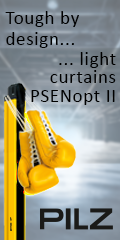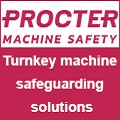
Posted to News on 29th Jul 2008, 22:26
Customised machine meets medical requirements
Horizon Instruments has collaborated with Innovadyne Technologies to produce a reagent deposition system tailored to the exact requirements of a medical diagnostics manufacturer.
An innovative start-up company within a leading diagnostics group recently identified Innovadyne as the provider of a patented non-contact deposition technique for providing highly precise and repeatable droplets in the nanolitre to microlitre range. The Nanodrop system supplied by Innovadyne utilises motorised syringes to aspirate, and a pressurised solenoid valve arrangement to dispense. While these components are common to other providers, Innovadyne says the constant presence of clean system fluid in the syringes and solenoid valve assembly is unique. This preserves the accuracy and repeatability of deposition throughout the lifetime of the instrument.
The fact that the liquid being deposited never contacts these critical components has multiple benefits, from reducing maintenance and maintaining precision, to opening up many options for the deposition of challenging substances. Particulate suspensions, bead- and cell-based mixtures and reactive solutions can all be dispensed. The original need to deposit a fine slurry of 1um diameter ferromagnetic particles was another factor that led to the Nanodrop being selected.
While the bench-top Nanodrop system offered the right deposition technology for efficacy testing and initial test-kit development, Innovadyne did not offer a system with the whole range of functionality needed by the client for clinical trial batches or initial production. Enter Horizon Instruments, an integrator specialising in custom-built automation within the medical diagnostic and pharmaceutical sectors and well known to both the customer and Innovadyne. The very close co-operation between all three parties led to an exceptionally effective and fully integrated system that now forms part of the 500 part-per-hour pilot-scale production facility.
Pilot production equipment
The customer's pilot-scale production line was based on trays of product being processed. Horizon integrated the eight-tip Nanodrop dispensing harness into an X-Y-Z motion platform that allowed multiple depositions onto each of the 44 devices on a tray. The user-friendly interface was via a PC with windows-based custom software written by Horizon. This controls the X, Y and Z axes, the wash station and all aspects of the Nanodrop system. Innovadyne's willingness to co-operate fully on the project enabled Horizon to access sub-functions within the Nanobuilder software and provide new functionality tailored to this customer's needs.
Horizon developed a series of tokenised instructions that bundled individual Nanobuilder commands into a useful instruction set. For example, the 'Move tips over wash station' instruction contained over 20 individual Nanobuilder axis and pump move commands. This simplified control system gives the user complete freedom to define repeatable arrays of dispensed micro dots in almost limitless combinations of number, volume and position. Incorporation of the Nanobuilder structure into the host software enables a seamless transition from benchtop development to pilot batches and full-scale production.
'Smart-valve' technology on the Nanodrop allows different amounts of fluids to be deposited from each of the eight channels as a standard function. However, Horizon was able to offer this customer the ability to vary the aspirate volumes on individual channels also. This specific enhancement was particularly significant since very costly reagents were being used in some channels. The aspirate and dispense cycles can now be tailored to suit the individual dispensed volumes and the size of the harness, thereby reducing any wastage of reagents to an absolute minimum.
In addition to providing its integration and automation expertise, Horizon Instruments further complemented Innovadyne's technology with an in-depth understanding of the validation requirements within the medical device sector. One of the key requirements laid down by the US Food and Drug Administration (FDA) is the need to control electronic data and user access rights - detailed in CFR21, Part 11. Horizon's integration of the Nanodrop enabled a fully validated and documented system to be delivered incorporating Innovadyne's patented technology and all of the customer's additional requirements.
Both Horizon and Innovadyne are excited about prospects for further collaboration and are looking forward to building on the success of the last project.
Want the latest machine building news straight to your inbox? Become a MachineBuilding member for free today >>















